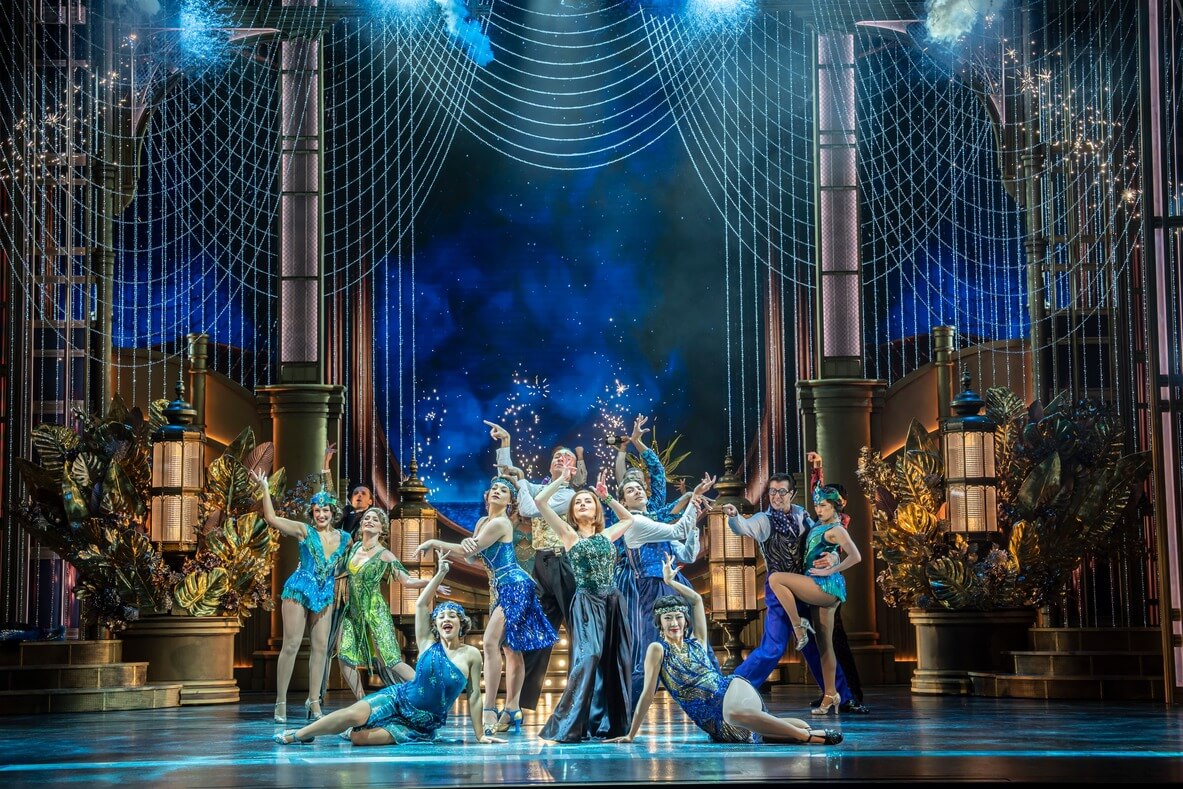Wilmot spends most of the play tearing down anything society has established in reverence of upholding the real truth. His truth is a dark one. “Everyone would be a coward if they only had the courage to be so” is a line I’ve heard before, but from Cooper’s lips it stung me with its brevity, candidness and, dare I say, correctness.
Cooper is brilliant and I hope he spends more time on stage. Vocally he is extraordinary. The obvious stereotype associated with lothario leading men — that being a purring quasi Austin-Powers slur - was not his choice. Instead, Cooper’s vocal swagger oozed not giving a flying f*** and contrasted beautifully with a dead-panned charismatic intellect that was constantly engaging and provoking. Cooper also allowed every word to be heard which is becoming a rarity in West End Theatre. It’s a shame I feel the need to mention this as a positive because actually being able to hear the majority of the words of a play should be a pre-requisite. This was particularly impressive as the venue was, for me, to big for the piece: the size and grandeur of the Haymarket minimised the overall immediacy of the production, which in turn diluted the overall impact of the show's most affecting moments. Additionally, the stage is never truly filled with the debauchery of the world Wilmot inhabited: the moments where Wilmot actually had to sexually engage with other members of the cast were more early teenage fumbles, than the daily habit of a sexpert.
The writing is often brilliant and sharp however there are moments of sluggishness. Wilmott’s opening prologue is clever and concise building a momentum that is unfortunately speed-bumped immediately by a tavern scene. In this, Wilmott is prompted by his pals to make up a poem on the spot about each of them — a rather blatant way of showing us that the man was good with words. Despite this, Jeffrey’s is regularly entertaining and the content of his script is one of the show strengths.
The structure of the piece, however, is rather disjointed. There is little bridging done between the comedy of the show that fills the first two thirds with the final tragic third. Cooper does a fine job of dealing with the comic and the tragic separately, but the script seems to compartmentalise them. Subsequently, we don’t get a chance to witness his intermediary fall and therefore are left rather apathetic towards Wilmot. This is arguably the show’s main issue.
However, this show is very worth seeing and an apt production for our time. An anti-hero who cannot seem to live with an understanding of consequences would do well in our society of instant gratification. A time of Amazon prime, Deliveroo and Memes would have suited Wilmott.

 Stephen Jeffrey’s play about famed hell-raiser, conversationalist and filthy poet John Wilmot (Dominic Cooper) is set during the reign of King Charles II and investigates Wilmot’s short-lived, adult life. It marks the long-awaited return of Dominic Cooper to the West End Stage after he shot to theatrical stardom as Dakin in Alan Bennett’s 2004 award-winning National Theatre production, The History Boys.
Stephen Jeffrey’s play about famed hell-raiser, conversationalist and filthy poet John Wilmot (Dominic Cooper) is set during the reign of King Charles II and investigates Wilmot’s short-lived, adult life. It marks the long-awaited return of Dominic Cooper to the West End Stage after he shot to theatrical stardom as Dakin in Alan Bennett’s 2004 award-winning National Theatre production, The History Boys.



 Torn Apart is the story of three relationships, in three generations, in three beds. All of which have the sword of Damocles hanging overhead. We are invited to observe as these couples move from happy, sometimes orgasmic, bliss to much darker places. Along the way we discover the couples connections, which are not just situational. Sex is used as a visual representation of the dynamic of each relationship and this is incredibly effective.
Torn Apart is the story of three relationships, in three generations, in three beds. All of which have the sword of Damocles hanging overhead. We are invited to observe as these couples move from happy, sometimes orgasmic, bliss to much darker places. Along the way we discover the couples connections, which are not just situational. Sex is used as a visual representation of the dynamic of each relationship and this is incredibly effective.